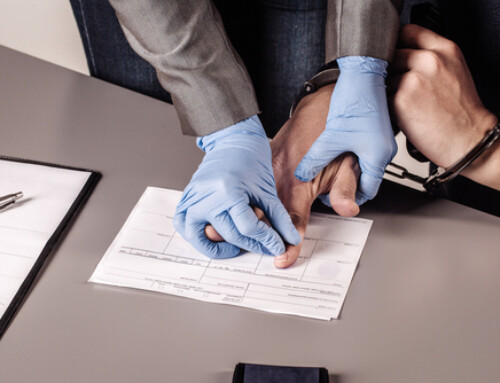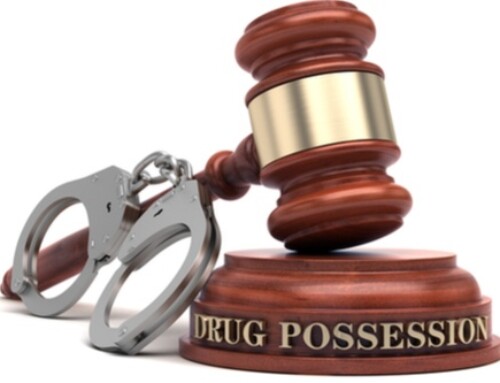As a criminal defense attorney, located in North Charleston, South Carolina, I have encountered people who are visiting South Carolina and somehow find themselves with a criminal charge. This is usually at its peak during Spring Break, as you can imagine. Being arrested is stressful enough but being arrested out of state only compounds the stress and uncertainty. There are several crimes that seem to be cyclical and, in this article, I will discuss the most common offenses in South Carolina during Spring Break.
What Are the Most Common Offenses in South Carolina During Spring Break?
With Spring Break taking place across the United States, hordes of college students will experience the sights our state has to offer. However, detainment by police should not be one of them. The best way to avoid encounters with law enforcement is to not break the law. For some, it’s easier said than done. There are several offenses that law enforcement can anticipate every year.
Underage drinking. Many college students consume large amounts of alcohol while on spring break. Law enforcement in South Carolina, however, regularly target students that appear to be under 21 years of age who are drinking illegally. It is common for South Carolina police to stop students and ask them their age and request to submit to a portable breath test. Using a fake ID to buy alcohol or get into bars and nightclubs is also a common offense that police enforces.
Driving or Boating Under the Influence. DUI enforcement is always a high priority. If you are underage and commit a DUI, the penalties are more severe with harsher license suspensions. If you are boating you can be charged with Boating Under the Influence (BUI) if you are impaired by alcohol or have a legal limit above a .08.
While consuming alcohol on the water is legal, South Carolina law prohibits anyone from operating a moving motorized vessel or vessel under sail on the waters of the state while under the influence of alcohol, drugs or combination thereof. Alcohol was the primary cause of 8 boating accidents in South Carolina last year, resulting in 3 fatalities – all of which could have been prevented.
Indecent Exposure. Warm weather and low inhibition can often tempt some spring breakers to show more skin than allowed by law. Beach and water patrols look for individuals who show too much skin. A person convicted of indecent exposure in South Carolina is guilty of a misdemeanor, fined in the discretion of the court, faces a maximum 3-year jail sentence, or both. If convicted, you may even have to register as a sex offender.
Disorderly Conduct. You can be charged with disorderly conduct if you disturb the peace by engaging in fighting, violent or seriously disruptive behavior, make unreasonable noise, or use offensive language or gestures to any person with the intent to provoke immediate physical retaliation.
Possession of Marijuana. Marijuana illegal in South Carolina. Even if you bought marijuana in a state where purchasing is legal, getting caught with marijuana or even with something used to smoke it in South Carolina means you may be charged with one of the following:
- Possession of drug paraphernalia
- Simple possession of marijuana
- Possession with intent to distribute (PWID)
- Trafficking marijuana
The charges you will face depend on several factors, including the weight of the drugs and the circumstances surrounding those drugs.
What Should I Do If I am Arrested During Spring Break in South Carolina?
Attitude. As the adage goes, you will catch more flies with honey than you will with vinegar. Never, ever be confrontational or disrespectful a police officer when detained, even if you think the officer is wrong or acting rudely. Additionally, it is important to remember that police officers are human, too. Should you encounter an officer one at the end of a long, tiring, and frustrating Spring Break shift and you are viewed as being disrespectful, your chances of getting arrested go up exponentially. Manners can go a long way.
Should you encounter a traffic stop, keep your hands on the steering wheel. When the officer approaches, state your full name and asked how the officer would like for you to proceed. You just indicated that you are fully in compliance and that the officer is completely in charge of the situation.
Search. Do NOT consent to a search. If an officer has probable cause to believe you are possession of drugs or other contraband, your consent is not needed to search the area where it is believed the item is located. If you are asked for consent, it could mean that the officer does not have probable cause and he hopes that you don’t know it. Never convert a bad search into a good search by giving consent.
Identity. Do not lie about your identity or age when detained by the police, In many jurisdictions, lying to law enforcement about your name or age when you have been lawfully detained is a jailable offense. Unfortunately, most who are arrested for failure to identify are people who are trying to talk themselves out of a citation or ticket. Lying to law enforcement about identity or age is almost always far more serious than the offense Spring Breakers were trying to avoid in the first place.
(A) It is unlawful for a person to knowingly make a false complaint to a law enforcement officer concerning the alleged commission of a crime by another, or for a person to knowingly give false information to a rescue squad or fire department concerning the alleged occurrence of a health emergency or fire.
(B) It is unlawful for a person to misrepresent his identification to a law enforcement officer during a traffic stop or for the purpose of avoiding arrest or criminal charges.
(C) A person who violates the provisions of this section is guilty of a misdemeanor and, upon conviction, must be fined not more than two hundred dollars or imprisoned for not more than thirty days.
Keep Hands Out of Pockets. Police fear pockets. Hands placed in pockets to a police officer can be seen as an act of aggression. Police officers are killed during routine traffic stops every year, and they are understandably cautious when detaining someone, especially at night. When you nervously put your hands on or near your pockets, or you dig around in your car’s glove box before you are asked to do so, officers must determine whether or not you have a weapon or something else you should not possess. Do not reach for anything unless the cop asks you to do so and keep your hands in plain view. It is imperative that you do not give an officer reason to believe that s/he is in danger.
Resisting Arrest. Resisting arrest occurs when a person interferes with a law enforcement officer’s attempt to perform a lawful arrest. When a person commits an act resulting in a police officer placing them under arrest, the last thing they should do is resist. In many states, including South Carolina, resisting arrest can have significant legal consequences. While in some cases it may only be a fine, more severe cases can have fines plus prison time. However, there are defenses to this charge. For more information on resisting arrest, please refer to my article entitled, “What is Resisting Arrest in South Carolina?”
For Spring Break college students who are facing criminal charges, hiring an experienced criminal defense attorney can help minimize the collateral consequences of a criminal arrest. A criminal defense lawyer can oftentimes negotiate with the prosecutor for a diversion or get charges reduced or dismissed. If you have been arrested in South Carolina during Spring Break, call the Deaton Law Firm and get the representation you deserve.






